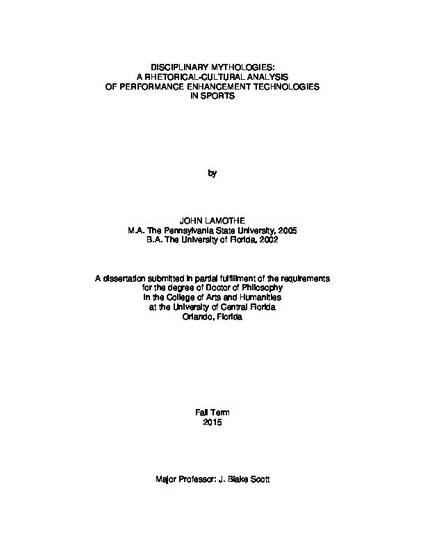
In sports discourse, the relationship between athletics and technology is often paradoxical. On the one hand, modern sports rely on technology at every level, from training and tracking of players to the equipment and apparel used by athletes to the game strategies and playing fields themselves. Nearly all of these technologies are intended to increase athletic performance on some level. And yet, certain performance enhancement technologies can be criticized for being antithetical to the spirit of sports, which is framed as being a strictly natural and pure human endeavor. Using a rhetorical-cultural methodological approach, popular sports discourse is analyzed to investigate how arguments in contested spaces between sports and technologies get (re)negotiated and (re)articulated to fit within a sports social language that emphasizes "pure" and "natural" ideals of sport. This often results in a dichotomy where the sport/technology relationship is either black boxed, thus being subsumed in the sport social language and becoming transparent and the relationships unarticulated, or the technology is regulated out of the sport through rules and bans. The reason for this articulation is attributed in large part to the deep humanism embedded in the sport social language. How a shift to a posthuman perspective would effect sports discourse is explored. These conclusions about underlying values in sports discourse lead to the formation of a new theoretical framework called disciplinary mythologies. Building off of Foucault's disciplinary power, Scott's disciplinary rhetorics, and Barthe's mythologies, disciplinary mythologies are discrete units of persuasion that both construct and constitute claims by drawing upon layered narratives and shifting associations that lose their context when entering the realm of myth. Two specific disciplinary mythologies are discussed—the level-playing-field topos and the nostalgia enthymeme—and it is shown how sports discourse often draws upon them to shape arguments and actions.
Available at: http://works.bepress.com/john-lamothe/8/
Dr. Lamothe was not affiliated with Embry-Riddle Aeronautical University when the degree was granted.